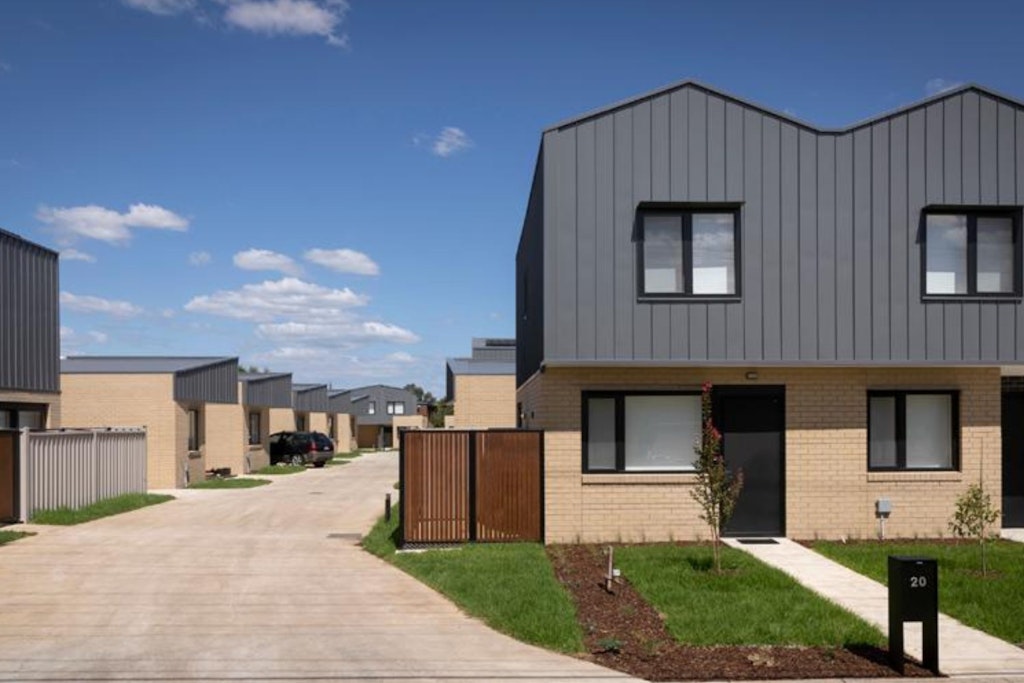Affordable housing investment brings a positive return for Baptcare
Last updated on 2 February 2024

Baptcare’s expansion into the affordable housing sector has returned positive results yet again with the organisation’s 2022-23 Annual Report highlighting the benefits of diversifying investments in the aged care and social support sectors.
Key points
- Baptcare Affordable Housing (BAH) was established as a separate but related company in 2013, initially overseeing the management of five housing units
- Their portfolio has now expanded to 191 properties housing over 300 people, while a new contract with Homes Victoria means an existing 159 properties and 33 new dwellings will shortly be added to the mix
- Financially speaking, BAH returned a surplus of $127,000 in 2023, on par with the $128,000 return in 2022
- The total value of its assets grew substantially over the 12 months, increasing from just over $15 million to nearly $25 million
Homeownership has always been viewed as the Australian dream, however, the likelihood of the everyday Australian buying their own home has gradually declined. Now, people in their 20s and 30s are less likely to own a home compared to 1971, while homeownership rates have decreased for people nearing retirement.
These challenges are compounded by the tight rental market leaving low-income earners – including those on the Age Pension – without access to secure housing. For this reason and more, Baptcare expanded into the social housing market. This move is a point of pride for Carol Geyer, Chair of Baptcare Affordable Housing.
“As I reflect on what BAH has achieved over the past decade, I recognise the ways in which we have responded to the opportunity and obligation to grow strategically, engage effectively with government, and build on our existing resources, and what this means for the vulnerable people we work with,” Ms Geyer said.
“With the rental crisis and housing supply becoming forefront issues of policy discussion, especially at Federal level, we believe there should be an increased focus on increasing the supply of social and affordable housing.”
- After starting as a small affordable housing provider in 2013 with a handful of housing units, BAH’s recent successful tender in the Community Housing Placement Program (CHPP) means they will soon manage over 300 properties
- This will provide housing opportunities for between 400-600 individuals in need
- Meanwhile, a current pilot project in Sunshine has seen tenants move into 20 new residences, including eight energy-efficient PassivHauses
Financially speaking, revenue has not been compromised despite the growth, with the total comprehensive income for 2023 falling by just $1,000 on 2022 and still turning a $127,000 surplus.
The surplus was achieved through a major reduction in ‘other expenses’, while employee benefits, property maintenance and services and utilities expenses all increased.
“2022-23 has been a significant year of growth, strengthening BAH and positioning it to play an expanding role in meeting the challenges of relieving housing stress in the community into the future,” added Geraldine Lannon, CEO, Baptcare Affordable Housing.
“We continue to respond to challenges. For example, following the pandemic, construction costs and timelines have increased from initial estimates on our Lalor and Keilor Downs projects, which BAH is negotiating with key stakeholders.”
BAH, Sustainability Victoria and other agencies will study the ongoing impact of building highly energy-efficient social and affordable housing, and what this means for the health, financial and social outcomes of the people living in these dwellings.
This research could shed invaluable light on how energy-efficient living can enhance the lives of all people, including older people who may otherwise be living with housing uncertainty. Detailed information on how housing security influences health and ageing security could result in better outcomes for older people who do not own their own homes.
“The enormous pressures on housing affordability are well documented, as well as the ever-growing gap between what is a sustainable level of housing expenditure for low and moderate income earners against the cost of market rents and ownership. The work of BAH is needed even more now than it was ten years ago,” added Ms Lannon.